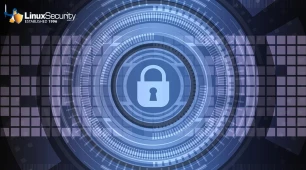
2024 was marked by numerous critical incidents that highlighted the importance of robust Linux security measures among admins. One notable event was when Utils, a widely used data compression tool widely used on Linux systems, was nearly breached due to an unwitting backdoor inserted by an actor deeply embedded within its community. Thanks to a vigilant Microsoft developer, this near miss was found just before it could cause a significant security breach - reinforcing how even trusted open-source projects may be vulnerable and increasing demand for thorough code reviews.
AlmaLinux and Rocky Linux saw significant adoption as businesses switched after Red Hat withdrew support for CentOS. Not only did AlmaLinux and Rocky Linux ensure continuity, but they also demonstrated renewed dedication to security within enterprise environments. Furthermore, emphasis has been put on safeguarding open-source software development processes through initiatives like the Open Source Security Foundation's manifesto. For security admins, these events are a critical reminder of the necessity of remaining vigilant and proactive when protecting our systems. Let's examine these events in more detail and explore their implications for your Linux security administration.
The XZ Utils Backdoor: A Close Call
 One of the most eye-opening security stories in 2024 involved the narrowly avoided backdoor attack on XZ Utils, a widely used data compression utility in Linux environments. A threat actor with access to millions of systems attempted to insert malicious code by becoming embedded within open-source communities for years before finally unleashing their code.
One of the most eye-opening security stories in 2024 involved the narrowly avoided backdoor attack on XZ Utils, a widely used data compression utility in Linux environments. A threat actor with access to millions of systems attempted to insert malicious code by becoming embedded within open-source communities for years before finally unleashing their code.
Microsoft developer Andres Freund discovered the malicious code before it could spread further. Freund's discovery demonstrated his expertise and how sophisticated and patient modern threat actors can be. It further highlighted vulnerabilities within open-source projects and reinforced the importance of regular code reviews.
What this means for security admins is clear: reviewing code contributions cannot be taken lightly. The open-source nature of Linux presents both strengths and vulnerabilities. For this reason, transparency and community engagement must be balanced against stringent security protocols to protect against deeply embedded threats.
The Transition from CentOS: Adopting AlmaLinux and Rocky Linux
2024 marked another key turning point within the Linux community with Red Hat's decision to discontinue support for CentOS. For years, CentOS had been the go-to choice of enterprises seeking a secure yet stable distribution for their servers and infrastructure. With Red Hat changing course, businesses faced the challenge of finding an equally trustworthy alternative distribution.
AlmaLinux and Rocky Linux have quickly emerged as leading alternatives, providing enterprises with the stability and support they require to thrive. AlmaLinux arose from CloudLinux team efforts, while Rocky Linux, spearheaded by CentOS co-founder Greg Kurtzer, has proven a reliable community-backed solution. Both distributions aim to maintain CentOS users' expectations of quality service so that businesses transition smoothly without incurring disruptions during transitioning processes.
Security admins facing this transition period need more than technical knowledge; they must also assess and tighten security protocols. Switching distributions requires extensive planning, meticulous testing, and an in-depth understanding of each environment's security considerations. Administrators must remain vigilant and take measures to secure their systems during this changeover period.
Securing Open-Source Development: The Open Source Security Foundation’s Initiative
 2024 has also seen significant progress in securing the open-source development process itself. Threats such as those found in XZ Utils underscore just how crucial securing every component of software supply chains is. To meet this need, OpenSSF has increased its efforts to strengthen the development processes of open-source projects.
2024 has also seen significant progress in securing the open-source development process itself. Threats such as those found in XZ Utils underscore just how crucial securing every component of software supply chains is. To meet this need, OpenSSF has increased its efforts to strengthen the development processes of open-source projects.
One key initiative has been the Open Source Consumption Manifesto, which outlines best practices for consuming and integrating open-source software. The manifesto emphasizes transparency, security by default, and continuous risk assessment as ways for developers to ensure that any software they produce or rely upon remains safe from potential threats.
Security administrators must take the challenge of securing software development processes seriously. When these initiatives emerge, they should support them by contributing to open-source projects or advocating for stronger security policies within their organizations. By prioritizing security, they can reduce risks while creating more secure foundations for open-source software development.
Our Final Thoughts: Lessons Learned and the Way Forward
These three significant stories from 2024 offer crucial lessons for Linux security admins. XZ Utils' close call shows the necessity of stringent code reviews and community vigilance to prevent sophisticated attacks. Transitioning from CentOS to alternative distros like AlmaLinux and Rocky Linux illustrates the importance of careful and planned migrations that ensure security and stability during the process.
The Open Source Security Foundation's efforts underscore the need for a holistic approach to secure open-source software development. By supporting and adopting security practices within their ecosystems, administrators can contribute to creating more secure open-source environments.
 These lessons translate to several key actions:
These lessons translate to several key actions:
- Continuous code review and monitoring: Relying solely on trusted contributors isn't enough; every line of code should be analyzed for potential security threats.
- Comprehensive migration planning: When switching distributions, testing and securing setups thoroughly before migration is vital.
- Engaging with community initiatives: By following and implementing guidelines from organizations like OpenSSF, supporter engagement in community security efforts can enhance overall security posture.
By prioritizing these areas, Linux security administrators can more effectively defend against both current and potential future threats to their systems. While 2024 may have alarming tales to tell, these stories also encourage an active approach to security vital for open-source software's resilience.
These events have served as an eye-opening reminder that security is an ongoing journey rather than an accomplished state. The collaborative nature of Linux and open-source communities is an excellent solution to these challenges. Through shared vigilance, proactive strategies, and commitment to best practices, security administrators can protect their systems against today's and tomorrow's threats.
What do you see as the most significant Linux security event of 2024? Connect with us @lnxsec and share your thoughts!


















